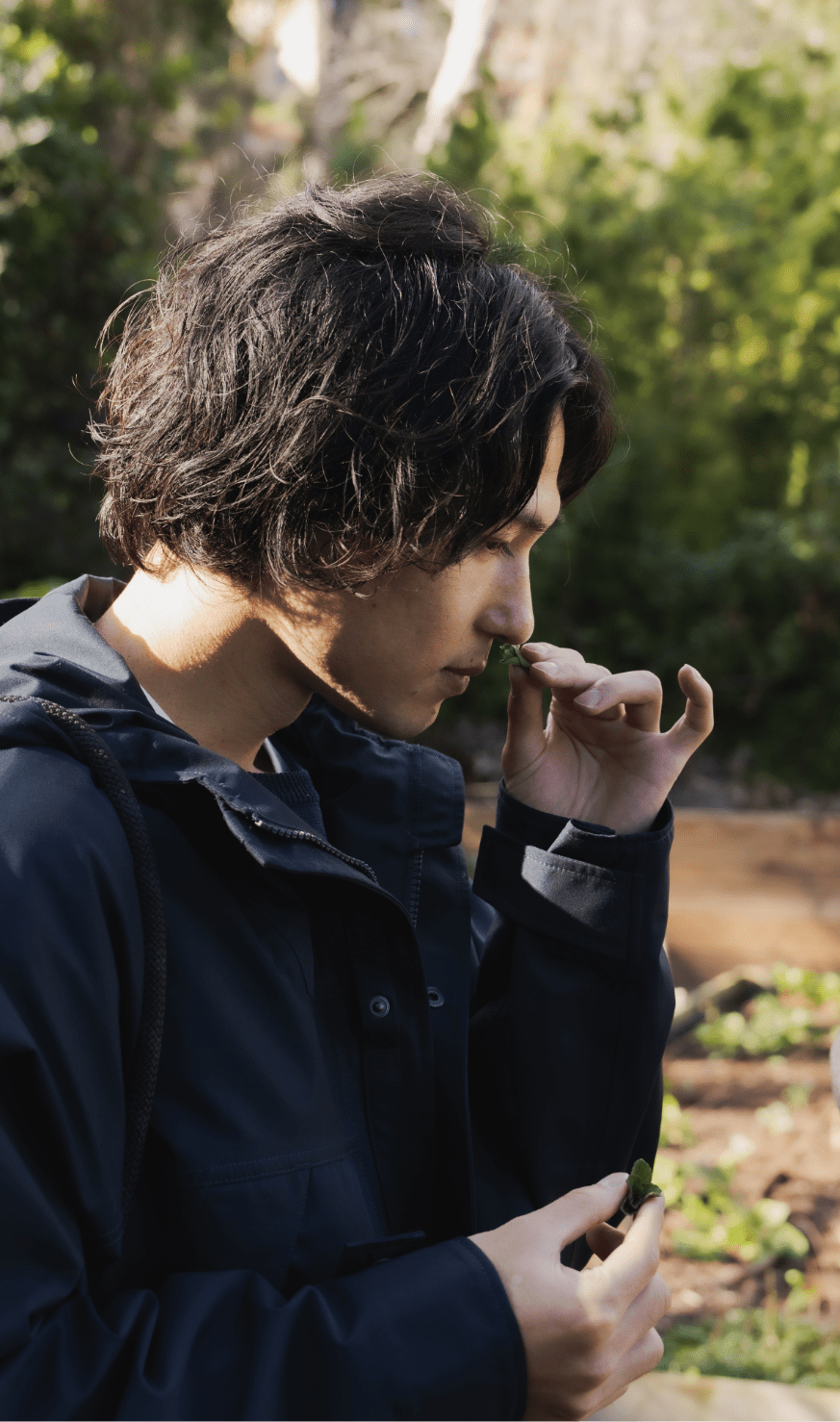




A Farm
Atop a Luxury
Apartment Complex?!
Takumi Minamoto
Finds the Future of Food
While walking the streets of Monaco, Minamino was struck by how committed the entire country is to sustainable initiatives. Monaco is actively working towards a greener future, including the reduction of single-use containers, tableware sharing services, green building standards, and efficient urban transport systems.
※ The previous article is here.
Next, we visited the Terrae project, a rooftop vegetable garden that symbolizes the future of sustainable agriculture in Monaco. In this lush green area, Minamino explores farming methods in harmony with nature and the value of local ingredients in depth.
Innovative Rooftop Farm that Generates Sustainable Agriculture in Urban Monaco
Monaco boasts 22% green space, the second highest percentage in Europe after Austria. Of this, 62% is used as public space.
Minamino was also surprised, saying “I have a strong urban image of Monaco, but there is surprisingly a lot of greenery.”
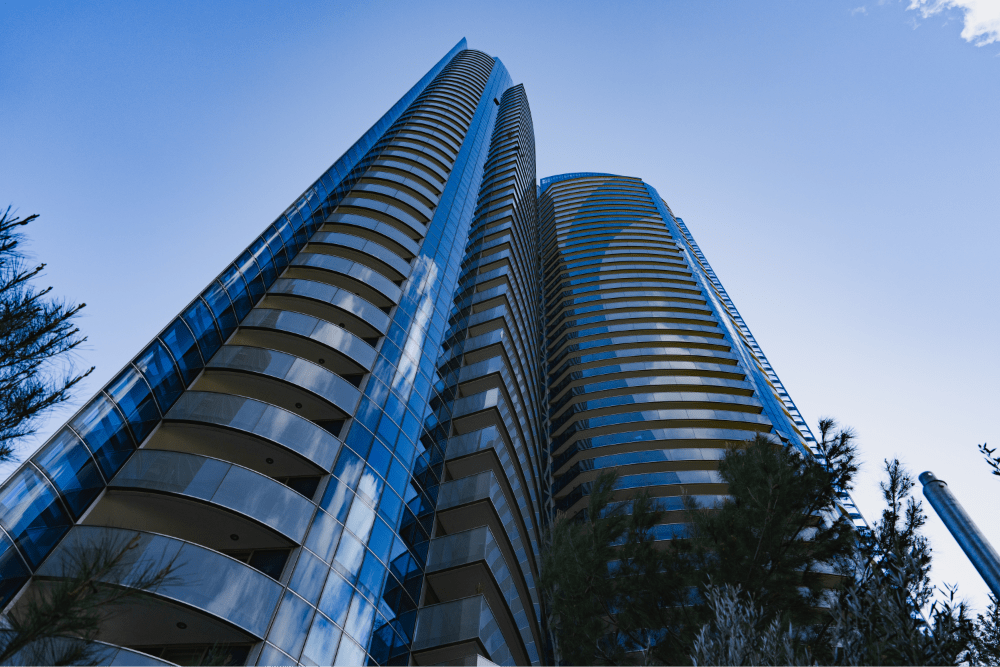
One such verdant place is located at the Odeon Tower. This garden at the most expensive apartment complex in the world is truly a quiet haven. On the 450-square-meter farm, birds chirp, the scent of flowers fills the air, vegetables and herbs grow, and butterflies and bees flutter about.
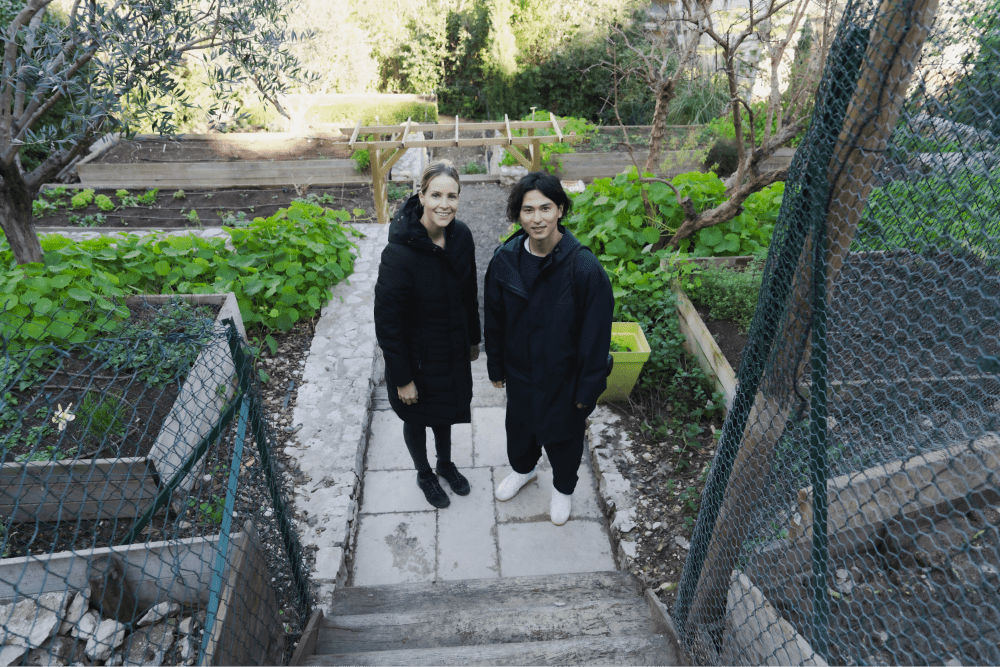
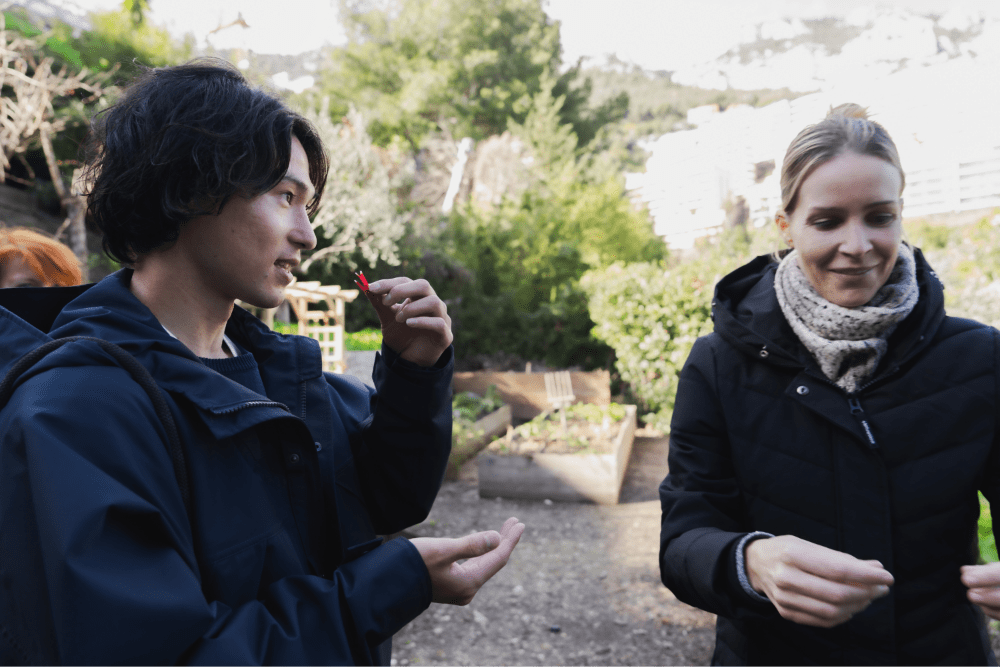
“Can you believe this is the roof of a building?” As he said that, Minamino smiled as he looked at this ecological garden. This farm is managed by organic farming startup “Terrae,” and the residents of the complex are given priority access to purchase its produce.
After founder Jessica greeted us, she offered a red flower. The moment Minamino put it in his mouth, he exclaimed, “It’s sweet!”, unable to hide his surprise.
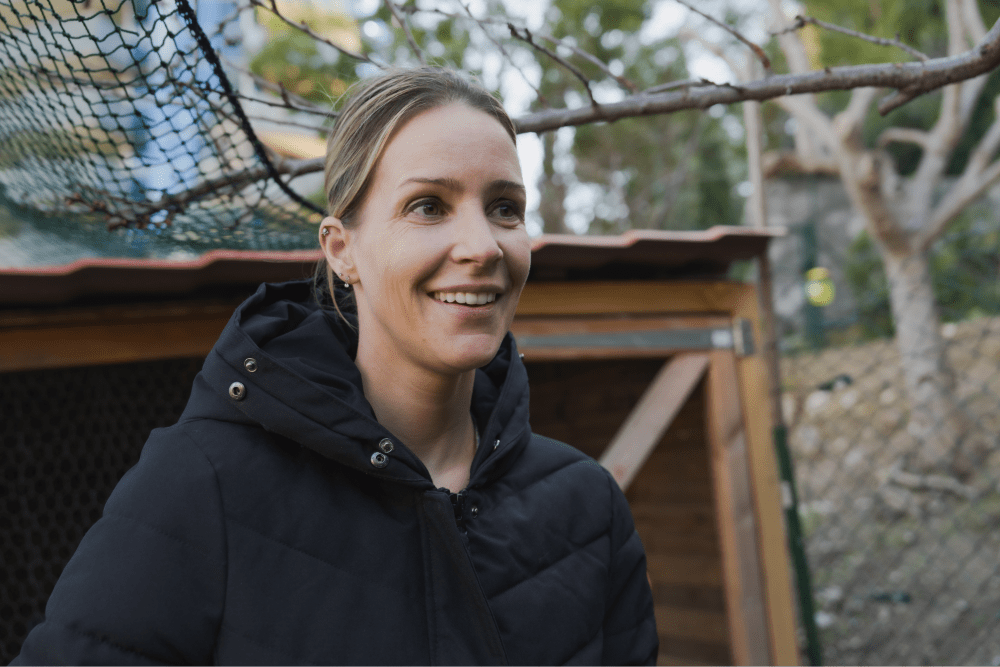
Agriculture was thriving in Monaco over 100 years ago, but ceased completely due to subsequent urbanization. When Minamino asked Jessica why she decided to start farming in Monaco, she began speaking about her own starting point.
“Looking out over Monaco’s skyscrapers, I remembered the time I spent in my parents’ small vegetable garden as a child. That rekindled my passion for farming, and led me to this path. I then learned about ‘permaculture’, a sustainable farming system, from farmers in France, and became determined to put that knowledge into practice”
She raised funds via crowdfunding and established the first organic vegetable garden and orchard on the grounds of the Prince Albert II of Monaco Foundation. Her work eventually became widely known and supported by luxury hotels and Michelin-starred chefs.
“At the beginning, no one believed farming was feasible in Monaco. However, I believed there was great value in this initiative due to the limited availability of fresh vegetables in Monaco. Now, I produce 4 tons of vegetables annually, and every year 2,000 children learn in my garden. This success has become one of the attractions for the Odeon Tower.”
“Jessica’s work really impacts so many people”, Minamino says with a smile.
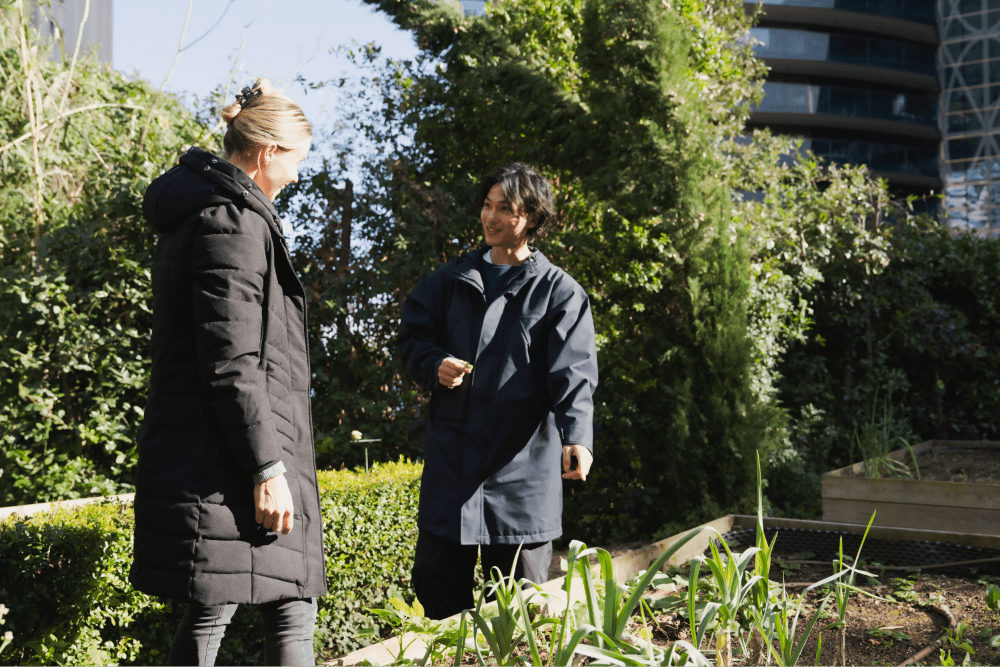
The “permaculture” Jessica practices, she tells us, is a concept that combines “permanence,” “agriculture,” and “culture” and is a design approach that aims for coexistence between humans and nature.
“We’re not just growing vegetables; we’re taking advantage of nature’s cycles, ensuring that the entire ecosystem functions as one large cycle. That’s an important concept in permaculture”
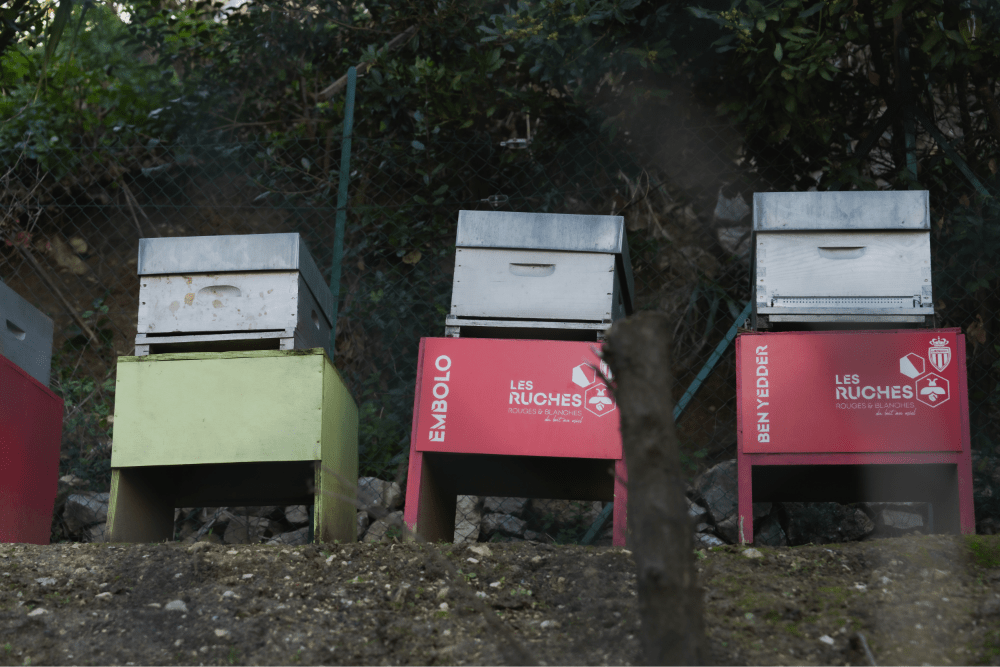
As he was shown around the farm, Minamino noticed honeybee hives quietly placed there and asked with keen interest, “I heard that the names of AS Monaco players are written on the beehives, is that true?”
“That’s exactly right. The names of AS Monaco players are on them, and your name, Minamino, will be added after the next ten goals scored,” Jessica says with a smile.
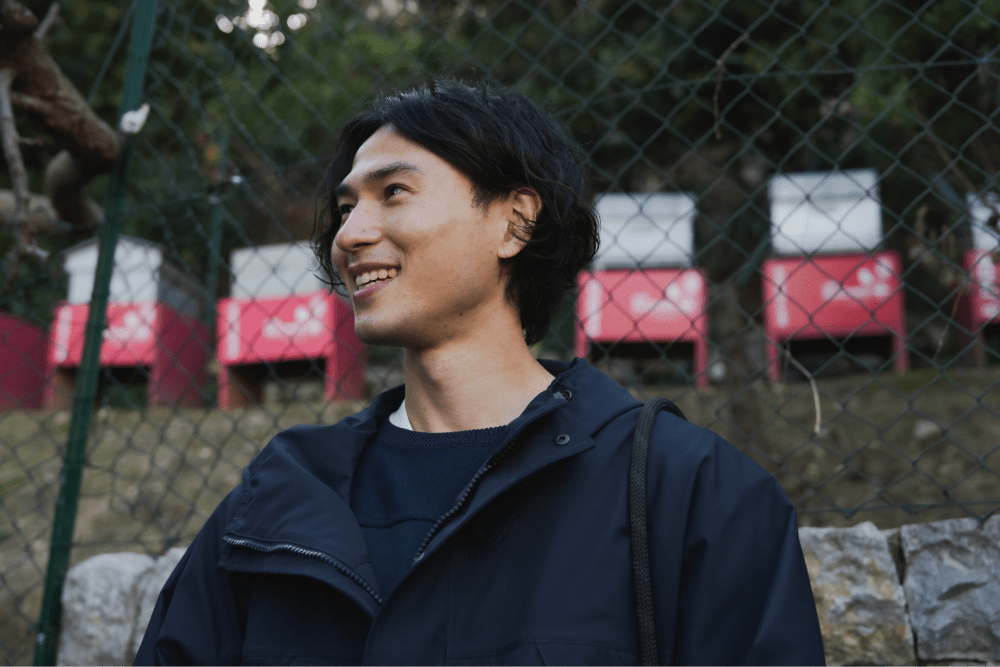
AS Monaco has launched an environmental program called “Les Ruches Rouges et Blanches” (Red and White Beehives).
“It is said that more than 75% of the world’s major crops are impacted by ‘pollinators,’ mainly honeybees. Without pollinators, the variety on our dining tables could be lost in an instant,” says Jessica, emphasizing the importance of this project.
“That certainly is an important endeavor. We’ve got three more goals to go, so I look forward to having my name put in next month,” said Minamino, also enthusiastic about this project.
Fresh and Sustainable. Rooftop Farm Pioneers the Future of Food
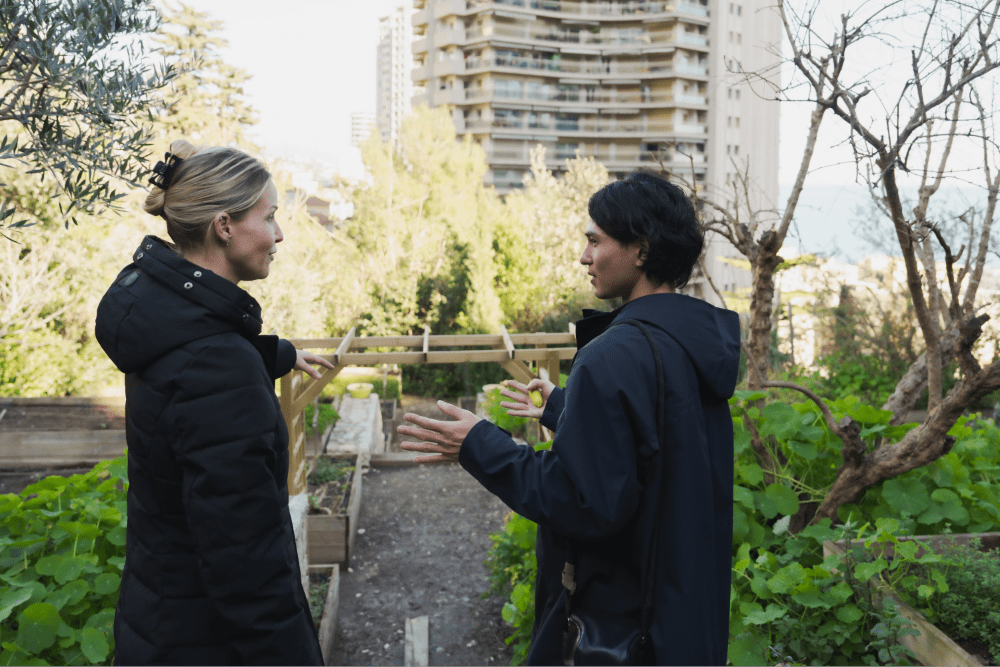
Surrounded by the rooftop farm’s lush greenery, Minamino asks Jessica about the differences from vegetables sold in stores. According to Jessica, the freshness of the vegetables grown on the rooftop is especially noticeable.
“Since you can consume them immediately after harvest, they have richer flavor and higher nutritional content. And because we grow our vegetables without the use of chemical fertilizers or pesticides, we can provide our consumers with vegetables that are close to how they are in nature.”
Minamino’s interest turned to how the farm contributes to Monaco’s sustainability.
Jessica explains, “The farm’s abundant greenery keeps summers cool and winters warm, and locally consumed ingredients reduce CO2 emissions from transportation. Additionally, consuming local ingredients not only provides fresh food, but also supports the local economy.”
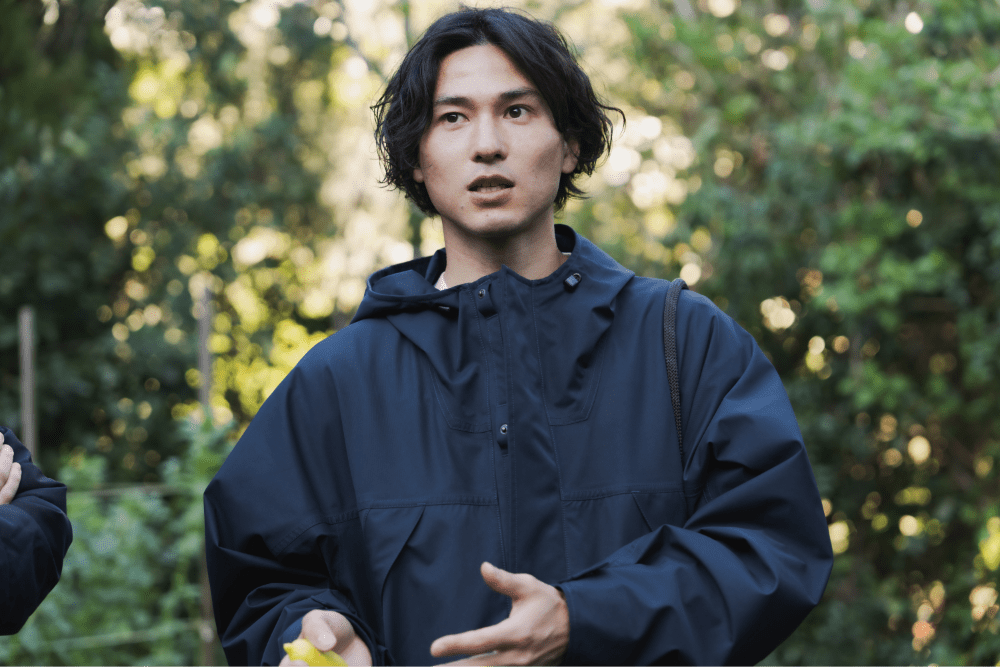
“I realized once again that sustainability is something truly close to us and deeply connected to our daily lives,” Minamino remarked after seeing the farm’s initiatives.
Jessica’s project is poised to expand even further.
“We want to expand our farm project to more regions beyond Monaco. In two years, we plan to introduce this project in Belgium, and someday, we’d like to bring it to Japan as well”
Minamino agreed, expectantly saying, “I look forward to having this project in Japan as well. I want to support it when the times comes”
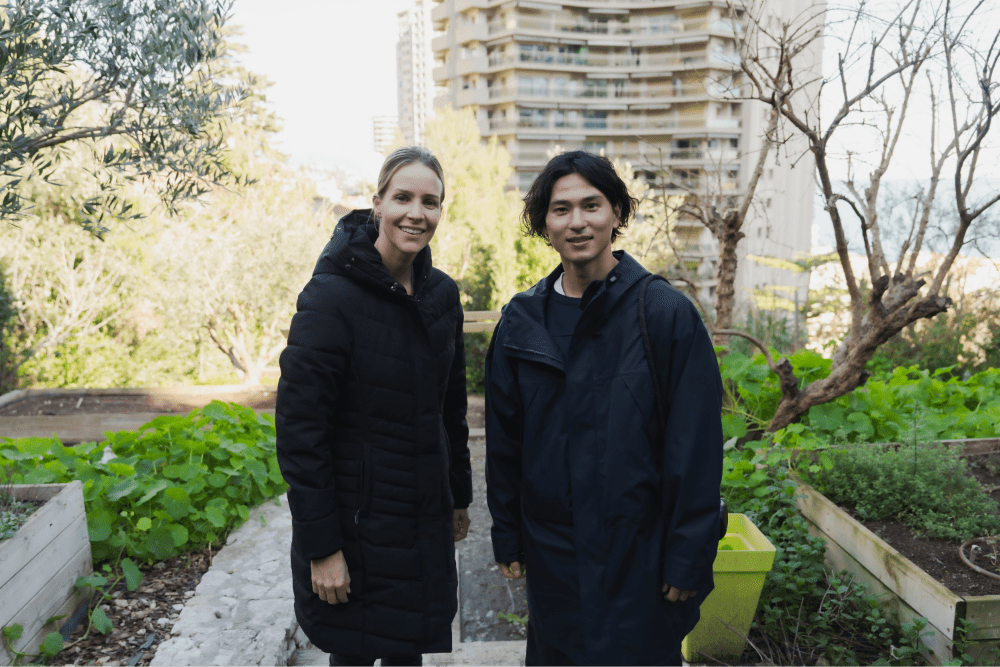
Jessica’s efforts are bringing value beyond the farm to the local community and environment. By adhering to the principles of permaculture, this project builds a mutually supportive relationship between humans and nature. How will it evolve in the future?
Practicing Sustainable Food Culture Through Local Sourcing and Consumption: The Efforts of Azzurra Kitchen
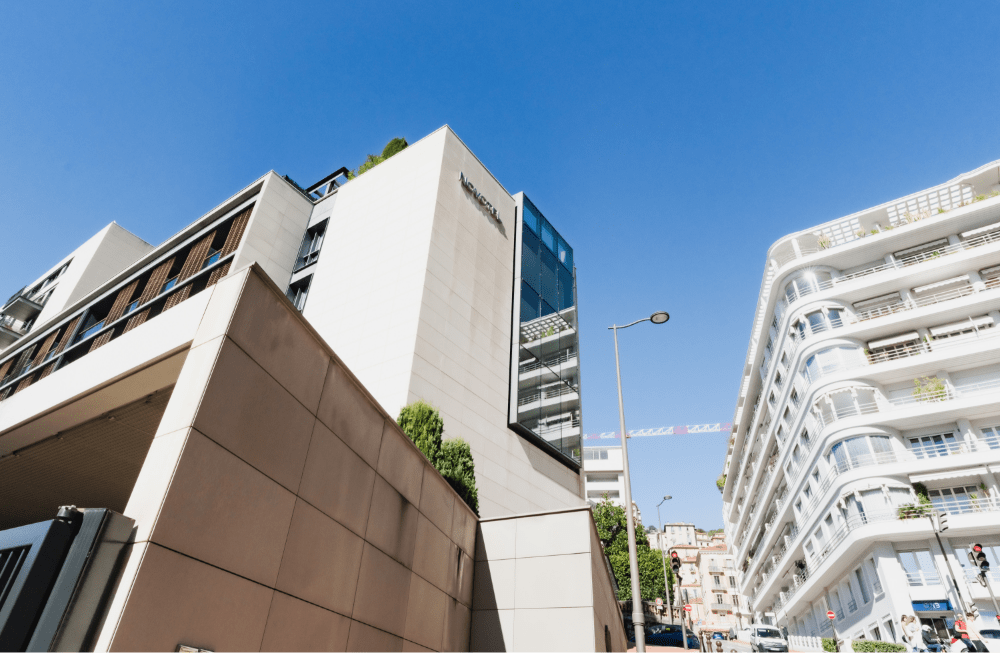
After leaving the farm, the next stop was Azzurra Kitchen, located within the luxurious Novotel Monte Carlo. This restaurant serves healthy dishes using vegetables from Jessica’s farm.
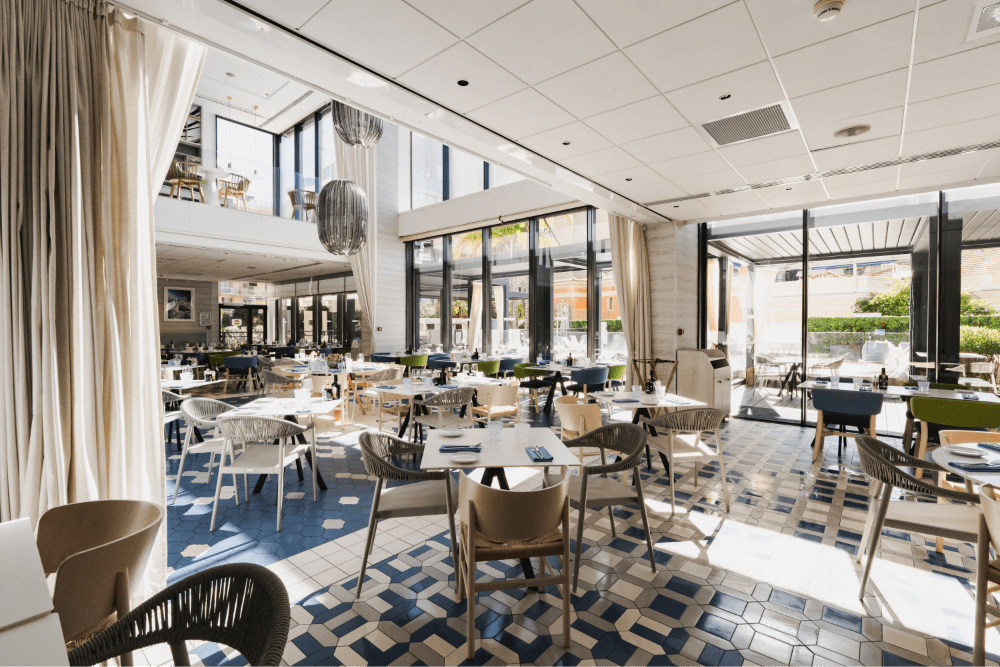
Stepping through the entrance, we were greeted with a sophisticated interior and welcoming lighting. The atmosphere inside the restaurant is modern yet warm. The windows offer a breathtaking view of Monte Carlo.
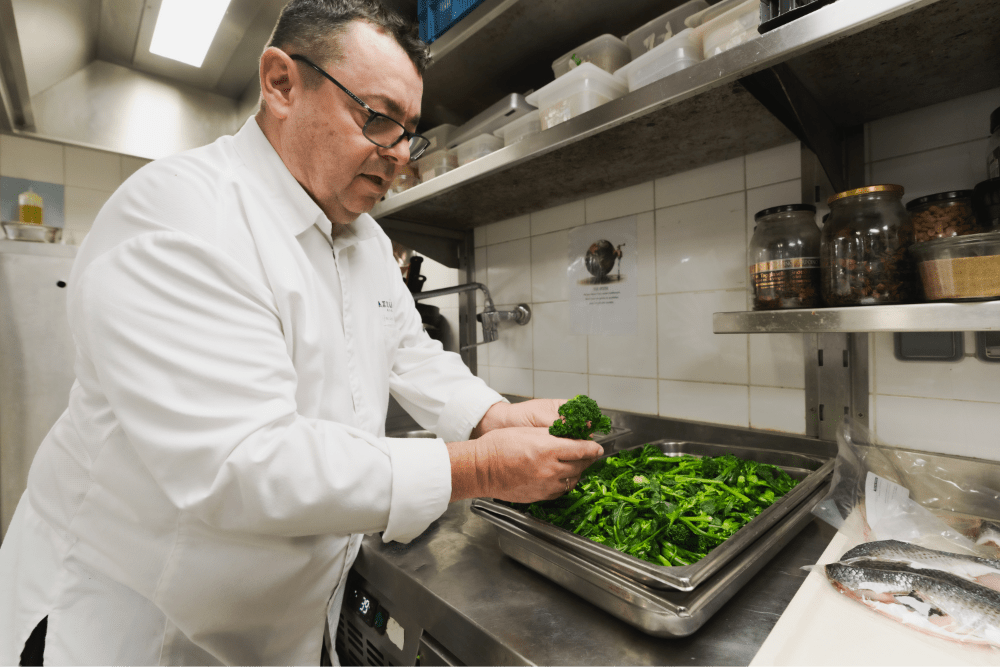
As we stepped into the kitchen, chef Fred Ramos came to meet us. Drawing inspiration from Mediterranean flavors, he used locally grown ingredients from the restaurant’s garden, as well as vegetables from Jessica’s garden, to create heartfelt dishes.
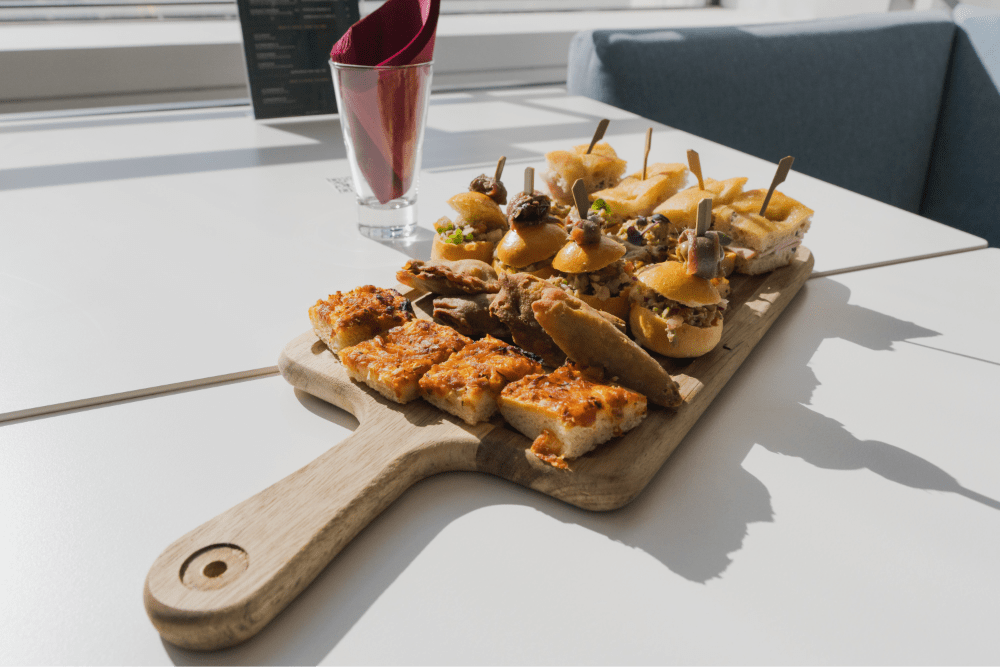
Fred’s cuisine makes abundant use of fresh vegetables, combining creativity and delicacy. Each dish highlights the natural flavor of the vegetables, conveying the close relationship with the farm and the passion that goes into every plate.
The menu includes local specialties that reflect the culture and flavors of the Mediterranean.
- Pichade: A pizza made with tomatoes and anchovies, a local dish from the Menton region near Monaco.
- Barbajuan: Traditional Monégasque dumplings filled with spinach, corn, and onion.
- Pissaladiere: A pizza with a generous amount of onions, a Nice speciality.
- Tarte Avocat: An innovative tart made with fresh avocado.
- Focaccia Mortadelle: A focaccia sandwich filled with traditional Italian mortadella.
Sustainable Food Culture Starting from the Novotel Monte Carlo Rooftop

After our meal, Fred gave us a tour of the rooftop vegetable garden.
In the bright and gentle sunlight, there were planters with the word “terrae” as soon as we stepped in. This place came to be as a part of a collaboration with Jessica’s project. They operate with the aims of focusing on sustainable farming methods and providing dishes using locally sourced ingredients.
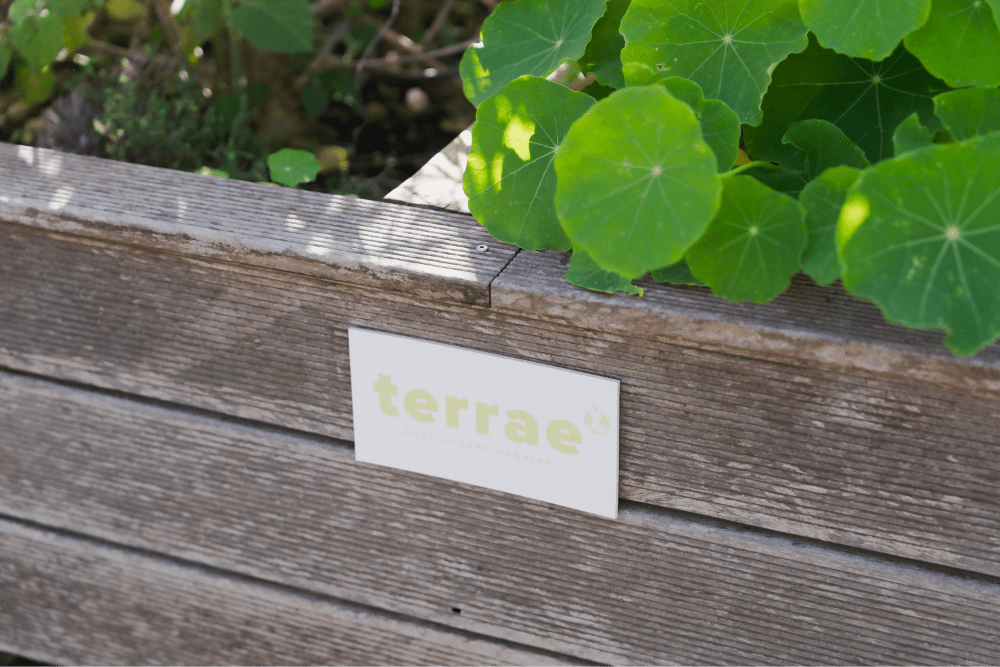
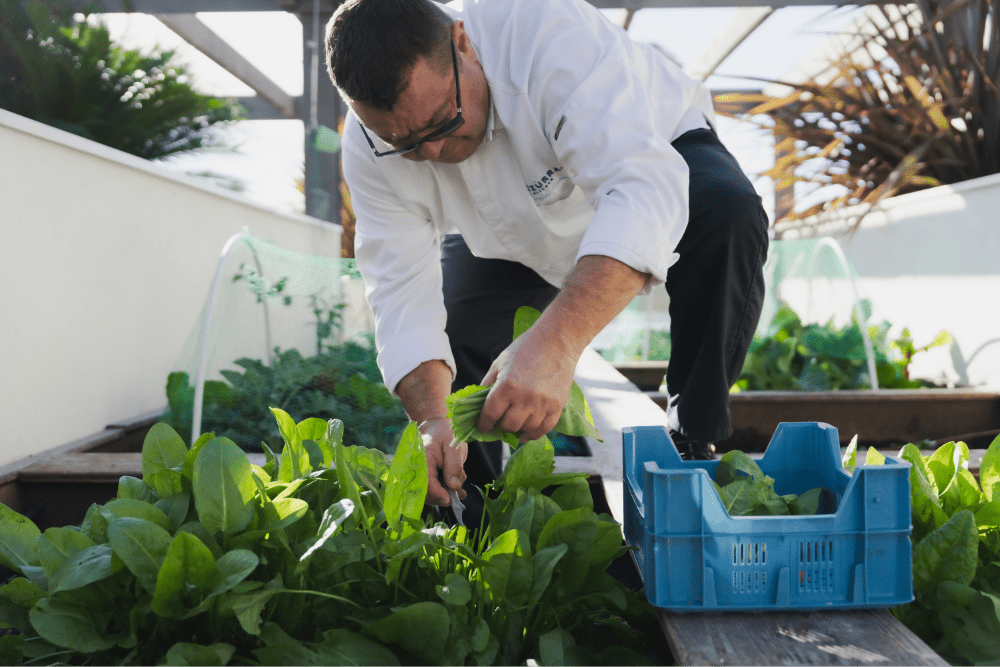
“Jessica suggested we use this space. I was immediately on board with the idea” (Fred)
A wide variety of vegetables and herbs are grown in the rooftop garden using organic farming methods, and the harvested produce is used in the hotel’s restaurant. The use of local ingredients in the menu helps to promote sustainable food culture.
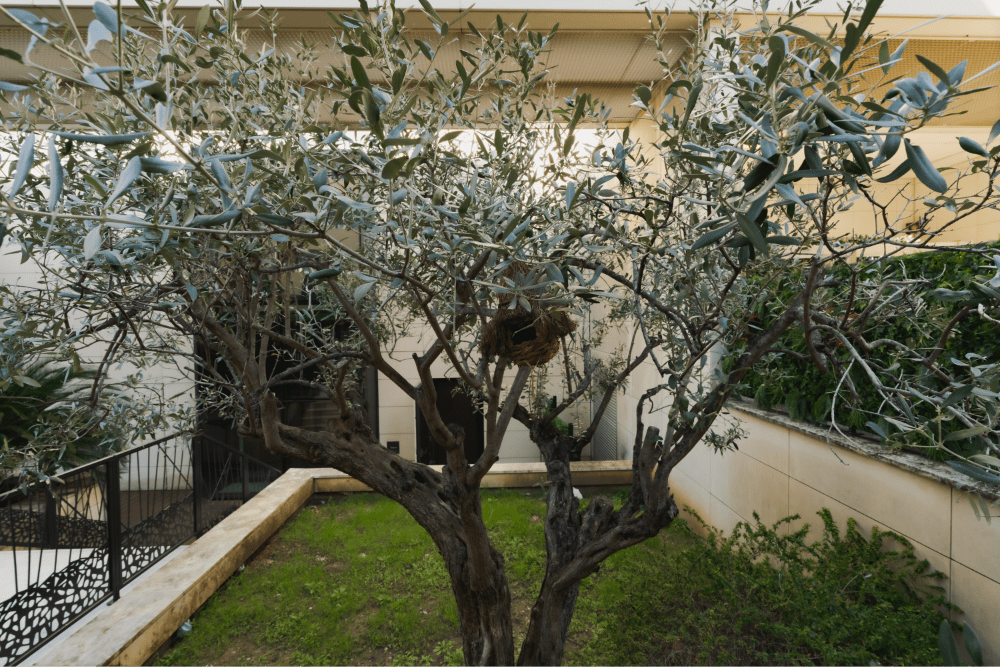
At the same time, Fred speaks about the challenges of running a vegetable garden.
“The biggest challenge with urban gardening is how to make the most of limited space. We’ve addressed this issue by planting a variety of plants, including olive trees, to enrich the environment”
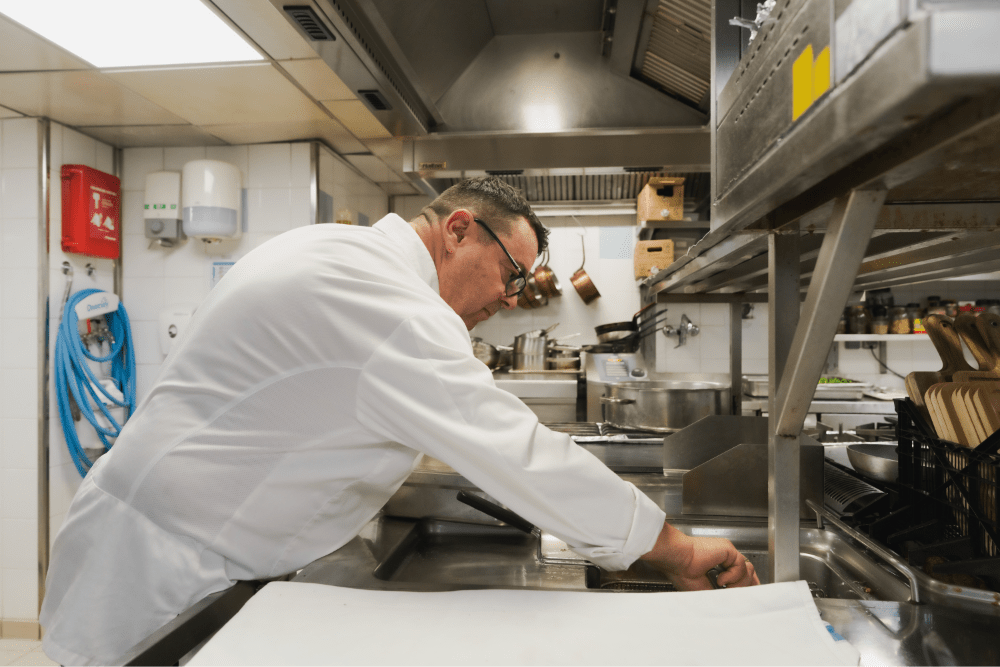
Sustainable practices are implemented not only in the garden, but in the restaurant as well. One such practice is providing meals aimed at reducing food waste.
“We participate in the Mr. Goodfish program, which respects the natural ecosystem with the most environmentally conscious practices possible, such as not catching fish during their spawning season. We’ve also introduced a system where customers can order their desired amount of ingredients like shrimp, fish, and meat to be prepared by a dedicated chef on-site. This not only reduces food waste but allows the customer to enjoy fresh ingredients in the best possible way”
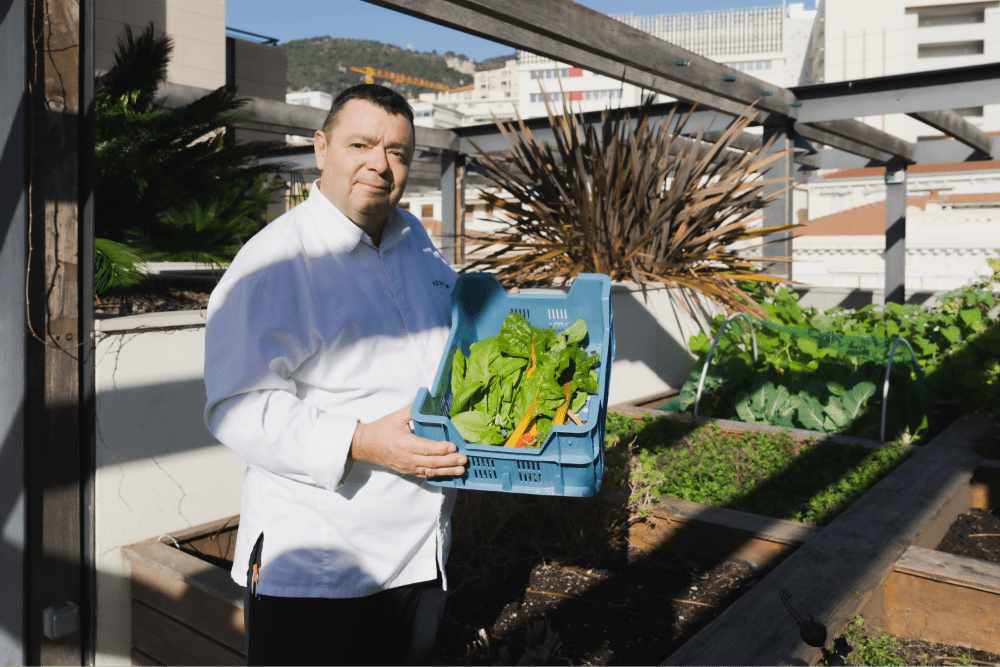
Azzurra Kitchen showed us a progressive restaurant model where sustainability is integrated, from collaborating with Jessica's farm to cultivating vegetables, preparing other ingredients, and serving dishes. It seems to represent a new direction for the modern hospitality industry, aiming to balance deep environmental consideration with high-quality dietary practices.

 农业
农业
 拖拉机
拖拉机
 收割机
收割机
 插秧机
插秧机
 自走式水稻直播机
自走式水稻直播机
 选配装置
选配装置
 蔬菜移栽机
蔬菜移栽机
 施肥机
施肥机
 中小型船用发动机
中小型船用发动机
 大型船用发动机
大型船用发动机
 发电机及空调
发电机及空调
 建机
建机
 小型工业发动机
小型工业发动机